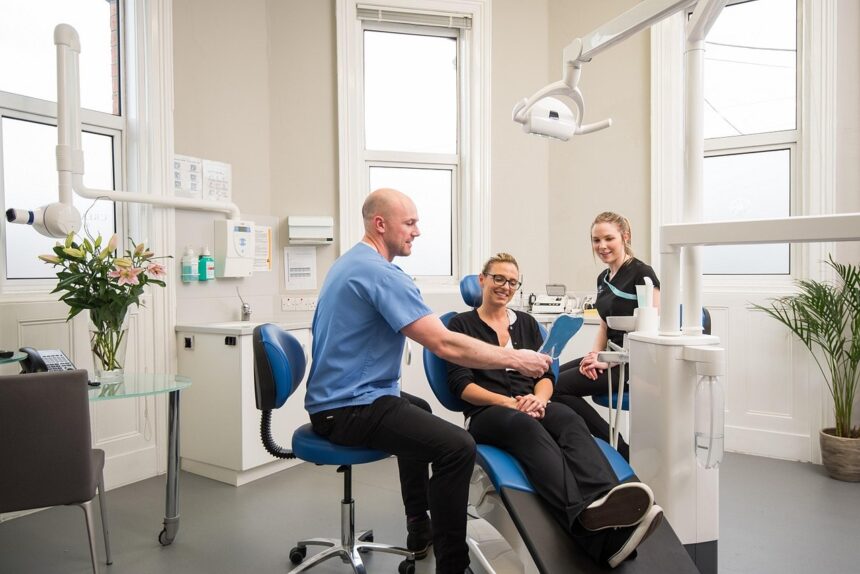Understanding Individual Health Needs and Preferences
Having a regular doctor means they get to know you. They learn about your health history, what you like, and what you don’t like when it comes to your health. This personal touch is key. It helps them figure out what’s best for you specifically.
- Understanding Individual Health Needs and Preferences
- Tailored Health Management Plans
- Continuous Monitoring and Support
- Enhancing Preventive Care and Early Detection
- Prioritizing Preventive Measures
- Patient Education for Disease Prevention
- Proactive Health Screenings and Counseling
- Streamlining Care Coordination and Access
- Improving Health Outcomes Through Continuity
- Reducing Hospitalizations and Emergency Visits
- Timely Interventions for Health Concerns
- Long-Term Advantages of a Consistent Provider
- Effective Management of Chronic Conditions
- Comprehensive Assessment and Monitoring
- Development of Coordinated Care Plans
- Patient Empowerment Through Education
- Building Trustworthy Patient-Physician Relationships
- Fostering Open Communication and Trust
- The Role of Familiarity in Patient Comfort
- Strengthening Collaboration for Better Adherence
- A Holistic Approach to Overall Wellness
- Addressing Broader Lifestyle Influences
- Engaging Family Members in Patient Care
- Promoting Health-Conscious Communities
- The Lasting Value of a Primary Care Partner
This doctor-patient connection is really important. When you have someone who knows your background, they can spot problems early. It makes you feel more comfortable talking about what’s going on with your health. This kind of personalized care is what makes a big difference.
Tailored Health Management Plans
Your primary care provider creates a health plan just for you. They look at your family history, your current health, and what you want. This plan isn’t one-size-fits-all. It’s made to fit your life and your health goals.
These custom plans help you stay on track. They make sure you get the right advice and treatments. It’s about making sure your health management works for you.
Continuous Monitoring and Support
One of the best parts of having a regular doctor is the ongoing check-ins. They keep an eye on your health over time. This means they can catch changes early and adjust your care as needed.
This steady support helps manage long-term health issues. It’s like having a health partner who’s always there. This consistent approach helps you stay healthier in the long run.
Enhancing Preventive Care and Early Detection
Prioritizing Preventive Measures
Having a regular doctor means they’re more likely to push you to do the things that keep you healthy before you get sick. This isn’t just about catching problems early; it’s about stopping them from starting in the first place. Your primary care provider can help you understand what lifestyle changes might be best for you, like diet or exercise, based on your personal health history. They focus on keeping you well.
Patient Education for Disease Prevention
Your doctor is a key source of information. They can explain how to avoid common illnesses and what to watch out for. For example, knowing your blood pressure numbers and what they mean is important. A good primary care provider will make sure you understand these things and what steps you can take. This education is a big part of preventing diseases.
Proactive Health Screenings and Counseling
Regular check-ups with your primary care provider are important for screenings. These tests can spot issues early, sometimes before you even feel symptoms. Your doctor will guide you on which screenings are right for you and when. This proactive approach to your health is a major benefit of having a consistent doctor. It helps catch things early, making treatment simpler and more effective.
Streamlining Care Coordination and Access
Having a regular doctor makes getting medical help much simpler. They already know your health story, so when you need a specialist or a specific test, they can send you directly to the right place. This cuts down on confusion and makes sure you don’t waste time going to the wrong clinic. It’s like having a personal guide through the healthcare maze.
Think about it: instead of trying to figure out who to call or where to go when you feel sick, you just call your doctor’s office. They can handle a lot of common issues right there or tell you exactly where you need to go next. This makes sure you get the right care quickly.
This consistent point of contact is key. It means you’re not starting from scratch every time you need medical attention. Your primary care provider is your first stop, making the whole system easier to manage and ensuring you get the attention you need without unnecessary delays.
Improving Health Outcomes Through Continuity
Reducing Hospitalizations and Emergency Visits
When you have a regular doctor, they get to know you. They know your history, what makes you tick, and what might be a small issue for someone else but a big deal for you. This familiarity means they can often catch things early, before they become serious enough to land you in the hospital or the emergency room. It’s about proactive care, not just reacting when something is already wrong. This continuity in care really makes a difference.
Timely Interventions for Health Concerns
Having a primary care provider you see regularly means they’re more likely to spot changes in your health sooner. They can then step in with timely interventions, whether that’s adjusting medication for a chronic condition or recommending a specialist. This consistent oversight helps manage health issues effectively, preventing minor problems from snowballing into major ones. It’s this ongoing relationship that allows for such prompt action.
Long-Term Advantages of a Consistent Provider
The benefits of sticking with the same primary care provider over the long haul are pretty clear. You build a relationship based on trust and open communication. This makes it easier to talk about sensitive health topics, leading to better understanding and adherence to treatment plans. Ultimately, this consistent care leads to better overall health and fewer unexpected health crises. It’s a partnership for your well-being.
Effective Management of Chronic Conditions
Comprehensive Assessment and Monitoring
Managing chronic conditions means a primary care provider really gets to know your health. They look at your history, do exams, and order tests to figure out what’s going on. This isn’t a one-time thing; they keep an eye on things over time. This continuous monitoring helps them spot problems early and tweak your treatment plan before things get serious. It’s all about staying ahead of the curve with your health.
Development of Coordinated Care Plans
When you have a chronic condition, your doctor creates a plan just for you. This plan might include changing your diet, making sure you take your meds, and scheduling regular check-ins. It’s designed to keep you involved in your own care. Your doctor also works with other specialists, like dietitians or physical therapists, to make sure everyone is on the same page. This teamwork approach is key to handling long-term health issues.
Patient Empowerment Through Education
Knowing about your condition is a big part of managing it. Your primary care provider will explain your illness, what your options are, and how you can take care of yourself day-to-day. They build a relationship with you so you feel comfortable asking questions and making choices about your health. When you understand your condition and feel supported, you’re more likely to stick with your treatment and make healthier choices. This makes a real difference in how well you manage your chronic condition.
Building Trustworthy Patient-Physician Relationships
Fostering Open Communication and Trust
Having a regular doctor means you have someone who knows your health history. This familiarity helps build trust. When you feel comfortable, you’re more likely to talk openly about any health worries. This open communication is key for your doctor to give you the best advice. It’s about creating a safe space where you can share everything without hesitation.
The Role of Familiarity in Patient Comfort
When you see the same primary care provider year after year, they get to know you. They understand your lifestyle, your family history, and your personal preferences. This makes you feel more at ease during appointments. You’re not starting from scratch each time. This consistent relationship means your doctor can spot changes or potential issues sooner because they know what’s normal for you.
Strengthening Collaboration for Better Adherence
Trust and comfort lead to better teamwork between you and your doctor. When you trust their recommendations, you’re more likely to follow through with treatment plans. This collaboration is vital for managing any health condition effectively. A strong patient-physician relationship means you’re working together towards your health goals, making it easier to stick to the plan and see positive results. It really makes a difference in how well you manage your health.
A Holistic Approach to Overall Wellness
Addressing Broader Lifestyle Influences
Your primary care provider looks beyond just immediate symptoms. They consider how your daily life, from diet and exercise to stress levels and sleep patterns, impacts your health. This broader view helps in creating a more complete picture of your well-being. Understanding these lifestyle factors is key to preventing future health issues.
Engaging Family Members in Patient Care
Sometimes, a patient’s health journey involves their family. A primary care provider can help involve family members, offering them information and support. This collaborative effort can make managing health conditions easier for everyone involved. It’s about building a support system that aids the patient’s overall wellness.
Promoting Health-Conscious Communities
When individuals have a consistent primary care provider, they often become more informed about health. This knowledge can spread, influencing friends and family. A strong primary care system contributes to a healthier population overall. It’s a ripple effect that starts with personalized attention and builds healthier communities.
The Lasting Value of a Primary Care Partner
So, when you think about your health, remember that having one doctor who knows you well really makes a difference. This person can help you stay ahead of problems with regular check-ups and advice, and they’re there to help manage things if you do get sick. It’s about building a relationship where you feel comfortable talking about anything, and they can guide you through the healthcare system. Having that consistent support means better care, fewer trips to the ER, and ultimately, a healthier you. It’s a simple step that can lead to much better overall wellness in the long run.













